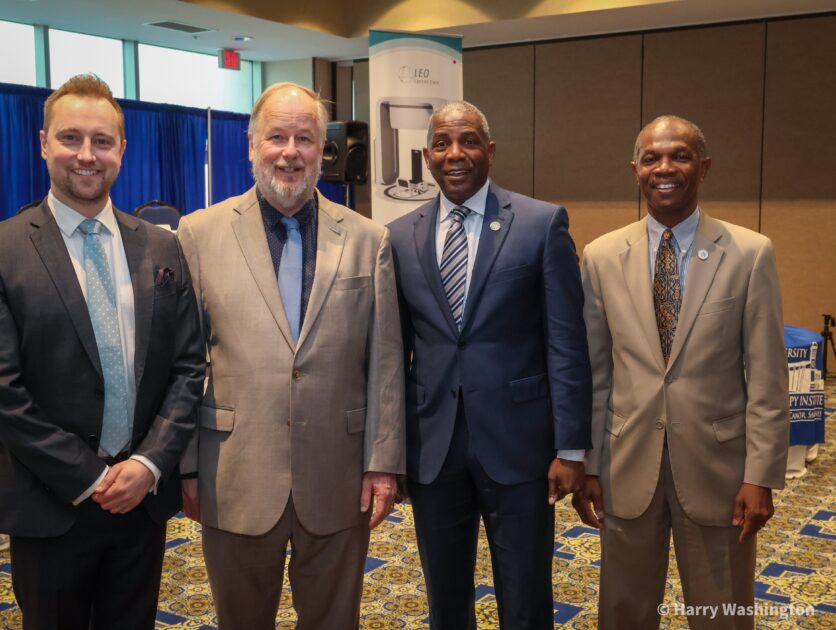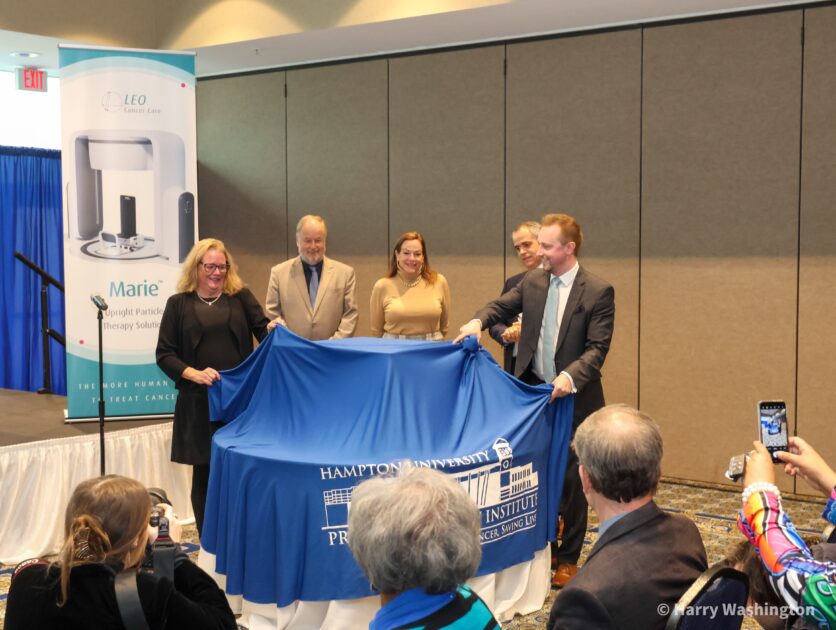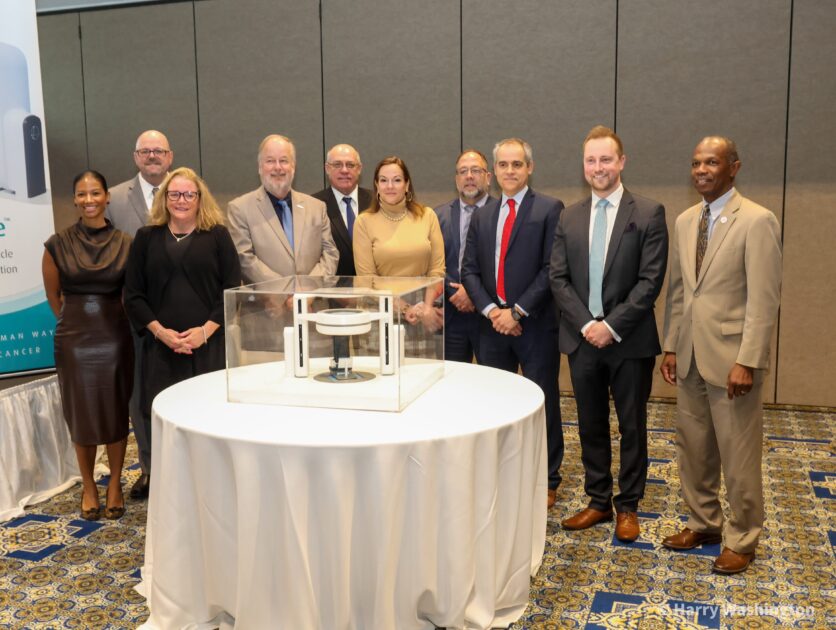

HAMPTON, Va. (March 3, 2023) – Hampton University Therapy Institute (HUPTI) and Leo Cancer Care have entered into a partnership to help advance research into Proton Arc Therapy (PAT). “The collaboration will be the start of research, and ultimately a new form of delivery of proton therapy in a seated position,” said Tiffany Velez Rodgers, HUPTI marketing director.
“At its inception, the proton therapy institute was a radical innovation here at Hampton University,” said University President Darrell K. Williams. “Hampton University itself in 1868 was born out of an experiment and some 155 years later, we continue to innovate.”
“Today is a great day. A day where the HUPTI takes a step forward in cancer treatment care and simply doing a great work for humanity. Today we move forward with like-minded organizations and with leaders that believe in HUPTI’s mission and goal,” said Rodgers.”

Proton beam therapy (PBT) is acknowledged as a viable and effective method of noninvasively treating many forms of cancer by more precisely targeting tumors and sparing healthy tissue from unnecessary radiation.
Current PBT delivers radiation from a selected number of angles around the patient, which limits the options to conform the treatment to the tumor best. Because PAT delivers dosing from a multiplicity of angles, it permits better conformity, thus the most biologically effective dose to the tumor, which improves the prognosis of the treatment. Current gantry based delivery treatment methods pose incredible challenges for delivering PAT with sufficient precision. Upright imaging and positioning technologies remove the need for a gantry because it uses patient rotation for treatment delivery. This could prove more conducive to the PAT approach. HUPTI will analyze and assess the Leo system’s effectiveness.
HUPTI will be the first facility in the world to install the Marie™ system into an existing fixed proton beam treatment room. “We will be the first ones that are doing something that is not done anywhere in the world. We aim at being the first cancer center to systematically conduct proton radiography to plan and position our patients,” said Dr. Alejandro Carabe, HUPTI Chief Medical Physicist. “So that means we are going to be able to have more patients and help more people to get their cancers resolved.”

“We’re driving to improve the clinical effectiveness of radiation therapy”, said Stephen Towe, CEO and Co-founder, Leo Cancer Care. “We want to drive to create global access to radiation therapy; in particular, protons.”
Jefferson Lab and Hampton University have engaged in a long-standing partnership. “I am personally quite excited about this,” said Dr. Cynthia Keppel, Jefferson Lab Associate Director for Experimental Nuclear Physics. “I was a joint professor here at Hampton for many years while staffed at Jefferson Lab and got to be operative in the proton therapy up and coming. It’s really at the forefront then and now.”
“We are so excited to be collaborating with Leo Cancer Care,” said MaryBeth Sullivan, HUPTI’s Executive Director. “Seated treatments will make patients’ treatment much easier, especially for those unable to lie flat for treatments. HUPTI will be the first on the east coast to have this ability to deliver proton therapy.”
For more information visit: https://www.leocancercare.com/
Leo Cancer Care was founded with one goal in mind, to be the more human way to deliver radiation therapy.
For more information visit: https://hamptonproton.org/
Hampton University’s outstanding medical physics program, strong ties to the nearby Thomas Jefferson National Accelerator Facility and longstanding relationship with the local cancer treatment community made it uniquely suited to become home to our nation’s eighth proton therapy treatment center. Engineered to be an environment where science and compassion meet, HUPTI’s advanced technologies and incredible, passionate staff continues to work together to bring patients and their families the very best in focused cancer care.
For more information visit: www.HUPTIGoesUp.com
For more information visit: https://www.jlab.org/
Thomas Jefferson National Accelerator Facility (Jefferson Lab) is a U.S. Department of Energy Office of Science national laboratory. Scientists worldwide utilize the lab’s unique particle accelerator, known as the Continuous Electron Beam Accelerator Facility (CEBAF), to probe the most basic building blocks of matter – helping us to better understand these particles and the forces that bind them – and ultimately our world.
![]()
